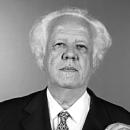[Op-Ed] IDENTITY ISSUES
An Introduction of Sorts
MÁS EN ESTA SECCIÓN
An Introduction of Sorts
Who am I? I am a Spaniard and an American, having immigrated to the United States at the age of 15. What is a Spaniard doing, writing for a Latino magazine? In the official government forms, I am “other.” As far as my race, I’m white and Caucasian, but I identify as Latina if there is a chance to mention the ethnic origin. Sometimes race and ethnicity are messed up, I don’t know what to say then and I leave the answer blank.
I have written for Al Día about cultural themes, especially literature and cinema in the past. I have worked with Latino organizations such as Raíces Culturales Latinoamericanas and I participate in la Feria Latinoamericana del Libro, which this year is celebrated at Taller Puertorriqueño the 12 of October. I have taught Latin American literature for the 28 years of my academic career at Saint Joseph’s University. I have traveled extensively through Mexico, Central America and South America. But more than anything else, what unites me with my Latino colleagues is our common language and the life experience of being an immigrant in the United States as many of them are. These are themes that I promise to explore in this publication.
American Versus Spanish
It is interesting to note that when I go to Spain to visit my family, almost everyone comments how American I seem. When I am in Philadelphia, a foreign accent betrays me immediately and people ask me: “Where are you from”? Maybe it’s true that I am an “Americaniard” as Debra Castillo said once when she analyzed my narrative work (Revista Canadiense de Estudios Hispánicos 30.1 (Otoño 2005): 47-59).
CONTENIDO RELACIONADO
I just finished a novel by Rachel Khong which caught my attention with its title, Real Americans (New York: Alfred A. Knopf, 2024). What constitutes being a “real” American? It asks. Those who speak English without a trace of a foreign language? Those who were born in this country? A review of this book concludes that “we are American by our own determination” (Wilson Wong, NYT Book Review, 04/30/2024). In other words, by our DNA and the scientific advances brought up in the third part of this novel, which takes place in 2030, a person can choose their own race and ethnicity. Obviously, we need to take into account the larger number of people who belong to more than one race and more than one ethnicity each day.
The Political Situation
This summer I spent more time than usual watching TV. Between the Olympic Games, the tennis championships and the Republican and Democratic conventions, it becomes evident on the screen that each of these events is more and more diverse. Sports have accepted and recognized their athletes’ diversity for many years now. Politics is still catching up to the same level of plurality and gender parity of other countries, including Latin America. A panoramic camera view of the Democratic Convention was enough to show the ample representation of Latinos, Afro-Americans, Asians, Wasps, women and men. All of them ready to support the candidacy of Kamala Harris, the brightest example of the political situation in the United States.
Kamala represents the best identity traits of an American citizen. She is of South Asian ethnicity, since her mother was born in India; she is Black from her father’s side who is originally from Jamaica. Her English is perfect, without the betrayal of any foreign accent and, since she was born in the United Staes, she can be President. All this without taking into account her personal qualities, such as her intelligence, her education, her feminism, her political experience, her energy, her optimism. Because of all these circumstances Vice-President Kamala Harris has all the attributes to access one of the “Black” jobs available at this present time, the presidency of the United States.
Concha Alborg, Ph D
Professor Emerita, Saint Joseph’s University
Philadelphia, PA
www.conchaalborg.com






DEJE UN COMENTARIO:
¡Únete a la discusión! Deja un comentario.